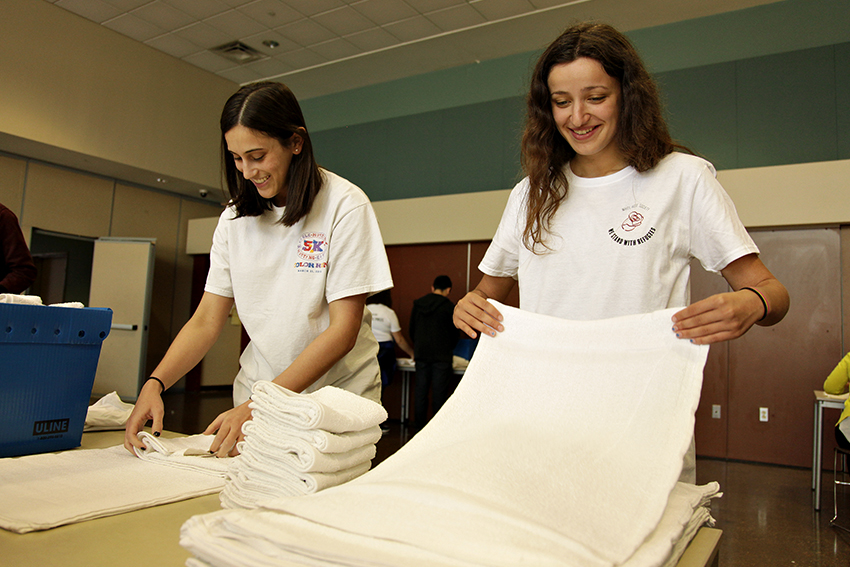Refugees often spend years in refugee camps, where conditions can be harsh as supplies are often scarce. Two UT student organizations are doing something to help
alleviate these conditions.
On Sunday, Texas Hillel and the UT chapter of the White Rose Society hosted an event to package 900 hygiene kits to send to people living in refugee camps. The White Rose Society is an organization dedicated to genocide prevention and Holocaust remembrance, and Texas Hillel is an organization dedicated to enriching the lives of Jewish UT students.
“It’s really hard to do self-care in these refugee camps, because you just lost your home and the first thing you’re grabbing is not toiletries or toothpaste or shampoo,” said Ayala Huber, economics junior and president of UT’s White Rose Society. “You probably are grabbing some money and your children in these zones that people are fleeing from.”
The project was funded by the Genesis Prize Association through Hillel International, in partnership with Heart to Heart International and the Jewish Development.
“(Hygiene kits) can be used as the first step for people rebuilding their lives,” said Wes Comfort, a representative of Heart to Heart International. “You know just being able to take a shower or just being able to brush their teeth, it can have a really big impact on what has to come next for them after they’ve been through so much.”
The event also gave participants the opportunity to hear from Sadala Musoke, an asylum seeker from Uganda.
“People like me are not welcome in my country,“ Musoke said. “I had no choice, because all I wanted was a safe place to live a better life. … This is the only country that feels safe.”
Musoke was the only one out of 400 asylum seekers in the detention center he was placed in who was granted asylum, or protection granted by a nation for someone who has fled their native country. Asylum seekers are unable to stay in their home country due to a fear of persecution on the basis of race, religion, nationality, membership in a particular social group or political opinion.
“If you don’t have to worry about being killed … or being arrested for no reason, then you are in a good place,” Musoke said. “I am very happy that (the volunteers) are here and (they) have interest in helping people. … We need people like (them).”





















